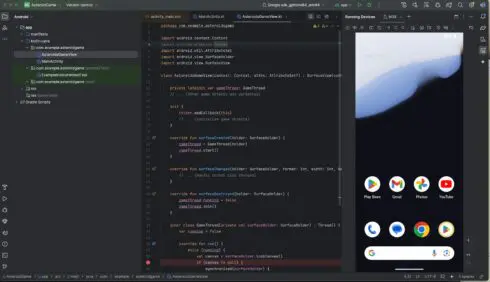
The Android development team took a break from adding major features to the Android Emulator over the last six months to focus on an initiative called Project Quartz, the goal of which was to improve the stability, speed, and performance of the platform.
Now, the team is reporting the improvements it was able to make to the Android Emulator, which can now be experienced either by downloading the latest version of Android Studio or updating to the latest version of the Emulator in the SDK Manager.
The first goal was to improve stability and reliability, which the team accomplished by fixing issues that were causing backend and UI crashes, updating the UI framework, updating the hypervisor framework, updating graphics libraries, and eliminating technical debt. Specifically, they moved to a newer version of Qt, its platform for building the user interfaces in the Emulator; updating its graphics rendering system gfxstream; and adding over 600 end-to-end tests to the pytests suite. The result of all of these changes was 30% fewer crashes, as reported by Android developers.
“Along with additional end-to-end testing, this means a more stable, reliable, and higher quality experience with fewer interruptions while using the Android Emulator to test your apps,” Neville Sicard-Gregory, senior product manager for Android Studio, wrote in a blog post.
Another goal of Project Quartz was improving release quality, which involved increasing the number and frequency of end-to-end, automated, and integration tests by 120%. Tests cover scenarios such as different snapshot configurations, graphic cards, networking and Bluetooth functionality, and performance benchmarks between Emulator system image versions.
“This comprehensive testing ensures these critical components function correctly and translates to a more reliable testing environment for developers. As a result, Android app developers can accurately assess their app’s behavior in a wider range of scenarios,” Sicard-Gregory wrote.
The final goal was to reduce the amount of open bugs in the Emulator, and during this initiative, the Android team was able to reduce open issues by 43.5%, going from 4,605 to 2,605. According to the team, 17% of the issues were fixed during Project Quartz, while the remainder were closed due to being obsolete, previously fixed, or duplicates of other issues.
“While these improvements are exciting, it’s not the end. We will continue to build on the quality improvements from Project Quartz to further enhance the Android Emulator experience for Android app developers,” Sicard-Gregory concluded.






